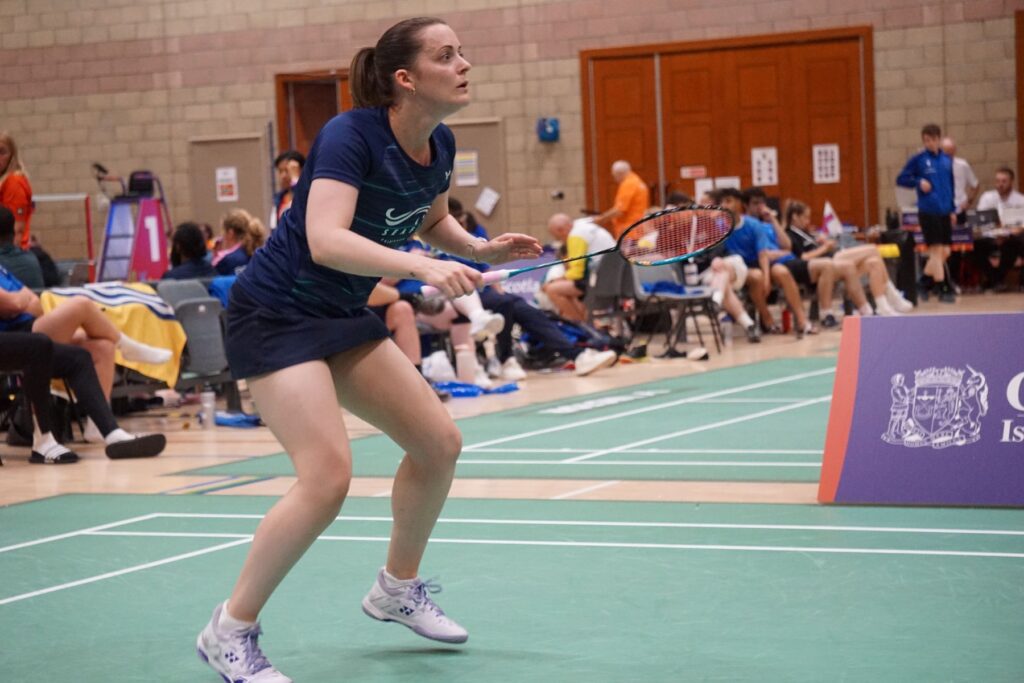Islanders always have to cover distances. Literally across the water, otherwise you’d never get anywhere else. At the 2025 Island Games at the Orkney Islands, north of mainland Scotland, the delegation that has had to travel the furthest is undoubtedly that of the Falkland Islands. An archipelago belonging to the United Kingdom, yet 8,000 miles away. The Falklands are based in the South Atlantic Ocean, about 300 miles from South America’s Patagonian coast. But they were in no doubt of coming to Orkney. “It shows how much we care. It’s a powerful thing to represent your country, your island. Our players take a lot of pride in it”, says badminton player, captain and coach Doug Clark.

Clark is an expert by experience. He has been attending the Island Games since 1993. “It’s an amazing event. For us, it’s something to look forward to. Basically, it’s our only opportunity to play international competition.” The 48-year-old Falkland Islander injured his achilles tendon at the start of the tournament and watched the team match against Gotland, a Swedish island in the Baltic Sea, from the sidelines, coaching from the corner.
The Falkland Islands badminton team has combined the trip to the Island Games with several weeks of training in Holbaek, Denmark. The country is one of Europe’s leading badminton nations. “That’s what makes us better,” says Roxy King-Clark, Doug’s wife and a former player. “We received training from world-class coaches; their level is truly phenomenal.”
From the Atlantic Ocean to Copenhagen and via Edinburgh to Orkney. All because they want to improve and to face international competition. At home, the players train five days a week (including gym training) to perform as well as possible at the Island Games. Once on Orkney, it’s all about enjoying themselves. “We won’t win this tournament, but that’s not what matters to us. Not that we’re not competitive, because we are,” says Clark. “But we want to enjoy these games. There’s no point in putting loads of pressure on ourselves. We want to just go out and enjoy it. Meet some old friends and make new ones. Embrace the Islands Games experience, because it’s special to meet like-minded people. Other islanders are also friendly, helpful, and open. It feels like home; I’ve known many of the competitors and even spectators for years.”
Penguins
The inhabitants of the Falklands are mainly descendants of Scandinavians and Britons. Roxy King-Clark is a seventh-generation Falkland Islander. “I would never leave the island,” she says. “It’s so beautiful. Ten minutes from our house, we have white sandy beaches with turquoise seas and penguins. There’ll be dolphins, seals, and whales swimming by. In the sky, you’ll see various birds of prey, some albatrosses. I’m biased, of course, but it is pretty much paradise.”

King-Clark is a tour guide in Stanley, the largest city in the archipelago. The Falkland Islands are home to approximately 3,500 people. During the cruise season between October and April, thousands of tourists visit the islands. “It brings a lot of money to the island. They’re heading for Antarctica, and when they pass the Falklands, they are surprised and amazed. It feels special to me when I can tell them that my ancestors also lived here and built certain buildings or helped te develop something else.”
Asked about the soul and character of a true Falkland Islander, she lists the qualities: “Friendly, hardworking, we love the outdoors, we are resilient, we don’t give up.” Her husband adds: “And we are also very British. A bit conservative, we all stand neatly in line, haha. I’m British. And I’m a Falkland Islander. It’s the same.”